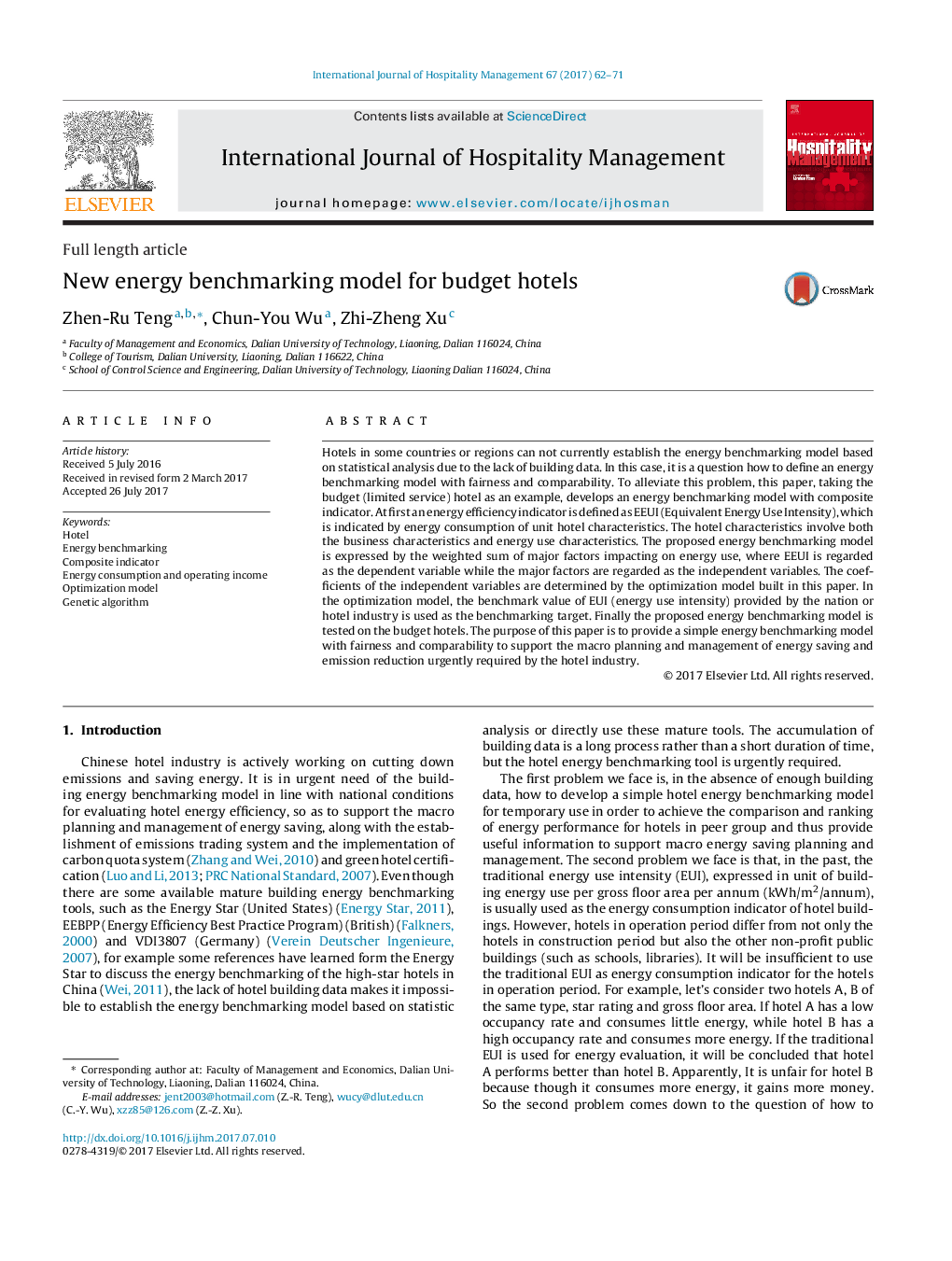| کد مقاله | کد نشریه | سال انتشار | مقاله انگلیسی | نسخه تمام متن |
|---|---|---|---|---|
| 5108202 | 1482470 | 2017 | 10 صفحه PDF | دانلود رایگان |
عنوان انگلیسی مقاله ISI
New energy benchmarking model for budget hotels
ترجمه فارسی عنوان
مدل ارزیابی انرژی جدید برای هتل های بودجه
دانلود مقاله + سفارش ترجمه
دانلود مقاله ISI انگلیسی
رایگان برای ایرانیان
کلمات کلیدی
هتل، معیار ارزیابی انرژی، شاخص کامپوزیت مصرف انرژی و درآمد عملیاتی، مدل بهینه سازی، الگوریتم ژنتیک،
موضوعات مرتبط
علوم انسانی و اجتماعی
مدیریت، کسب و کار و حسابداری
استراتژی و مدیریت استراتژیک
چکیده انگلیسی
Hotels in some countries or regions can not currently establish the energy benchmarking model based on statistical analysis due to the lack of building data. In this case, it is a question how to define an energy benchmarking model with fairness and comparability. To alleviate this problem, this paper, taking the budget (limited service) hotel as an example, develops an energy benchmarking model with composite indicator. At first an energy efficiency indicator is defined as EEUI (Equivalent Energy Use Intensity), which is indicated by energy consumption of unit hotel characteristics. The hotel characteristics involve both the business characteristics and energy use characteristics. The proposed energy benchmarking model is expressed by the weighted sum of major factors impacting on energy use, where EEUI is regarded as the dependent variable while the major factors are regarded as the independent variables. The coefficients of the independent variables are determined by the optimization model built in this paper. In the optimization model, the benchmark value of EUI (energy use intensity) provided by the nation or hotel industry is used as the benchmarking target. Finally the proposed energy benchmarking model is tested on the budget hotels. The purpose of this paper is to provide a simple energy benchmarking model with fairness and comparability to support the macro planning and management of energy saving and emission reduction urgently required by the hotel industry.
ناشر
Database: Elsevier - ScienceDirect (ساینس دایرکت)
Journal: International Journal of Hospitality Management - Volume 67, October 2017, Pages 62-71
Journal: International Journal of Hospitality Management - Volume 67, October 2017, Pages 62-71
نویسندگان
Zhen-Ru Teng, Chun-You Wu, Zhi-Zheng Xu,
